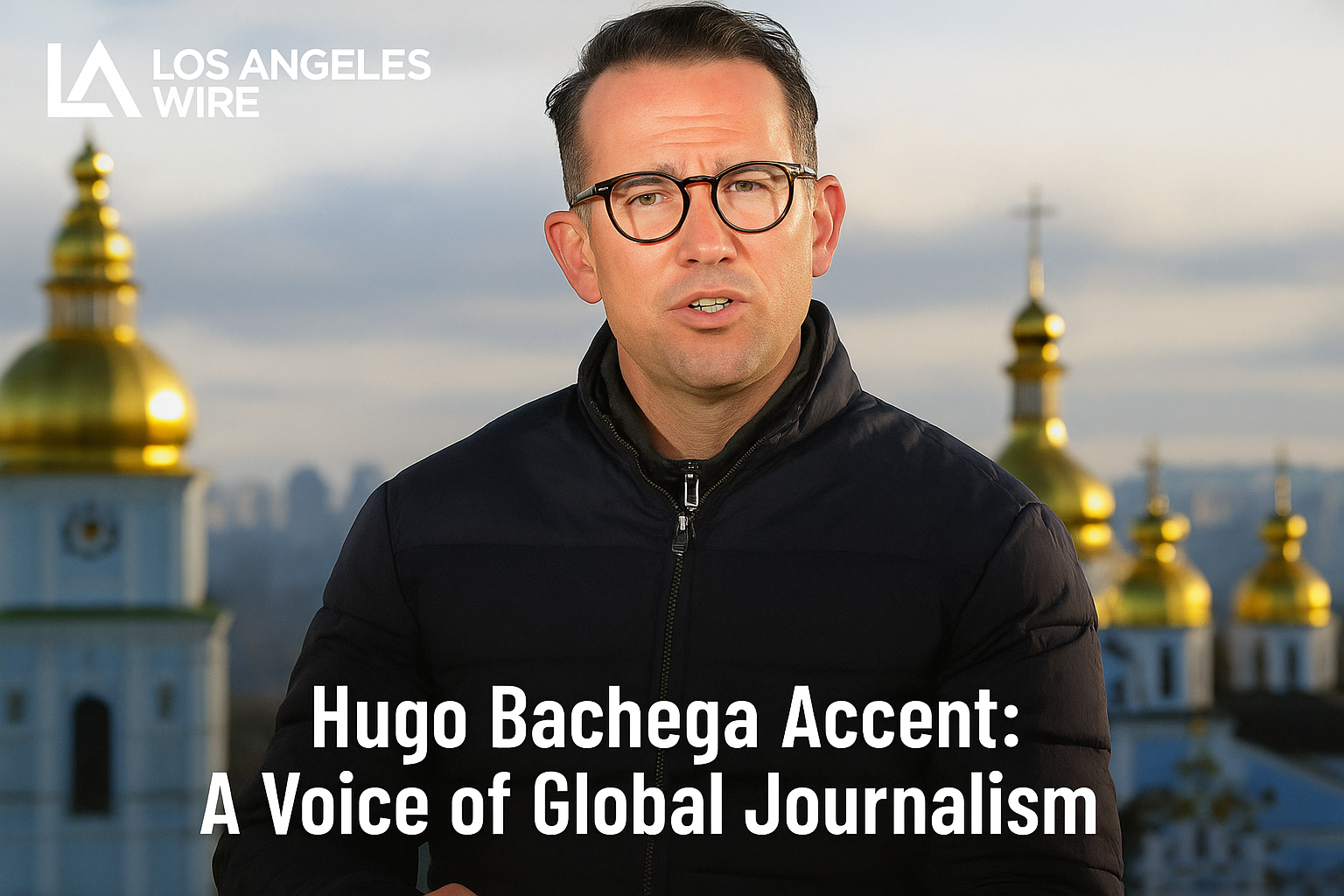The Hugo Bachega accent has become a notable characteristic among global news audiences. His voice reflects more than just linguistic flair; it carries the weight of international reporting, cultural understanding, and journalistic credibility. While many know him for his front-line reports and insightful analysis, it’s the unique cadence and tone of his speech that often sparks curiosity among viewers and listeners alike.
This article explores what makes the Hugo Bachega accent distinctive, how it reflects his global background, and why voice identity matters in journalism today.
Who Is Hugo Bachega?
Hugo Bachega is a respected journalist and foreign correspondent known for covering major international events. With experience reporting from conflict zones, political upheavals, and global crises, Bachega has earned a reputation for accuracy, depth, and cultural sensitivity. His reports have appeared on major international news platforms, where his clear delivery and composed demeanor stand out.
Listeners and viewers often notice not only the quality of his reporting but also the way he speaks—his accent—which subtly carries traces of his multilingual, multicultural journey.
What Defines the Hugo Bachega Accent?
The Hugo Bachega accent isn’t easy to categorize in traditional linguistic terms. It’s not a purely British, American, or Brazilian accent, but rather a blend that reflects a globalized background. It often includes:
- Neutral intonation: Clear and well-paced speech that avoids extreme local inflections.
- Subtle Latin influence: Slight hints in pronunciation or rhythm suggest possible roots in Portuguese, aligning with his Brazilian origin.
- International clarity: A deliberate articulation style likely developed through years of reporting for global audiences.
In a media world where clarity and relatability matter, this hybrid accent makes Bachega’s voice both accessible and memorable.
Why Do Audiences Notice Accents in Journalism?
Accents often influence how people perceive a speaker’s credibility, identity, and authority. The Hugo Bachega accent stands out because it avoids strong regional markers while maintaining a personable tone. This balance gives him several advantages:
- Trust and relatability: A neutral or soft accent can appeal to diverse audiences by avoiding linguistic bias.
- Clarity: Journalists like Bachega who articulate well are easier to follow, especially for international viewers.
- Authenticity: An accent shaped by real-life experience across regions reflects authenticity and depth.
For audiences used to fast-paced or heavily accented news delivery, Bachega’s voice brings a refreshing calm and global flavor.
The Role of Accent in Global Journalism
In international media, accents do more than convey regional origin—they build a connection. The Hugo Bachega accent reflects a broader trend in journalism: the move toward multicultural neutrality in broadcast voice. This trend is especially important for foreign correspondents who report for audiences worldwide.
Consider how a journalist’s accent may affect:
- Perception of neutrality: A mixed or soft accent can project impartiality.
- Audience retention: Listeners may stay tuned longer if they find the voice comfortable.
- Professionalism: Balanced accents often sound polished and trained, which aligns with journalistic standards.
In this context, Bachega’s accent becomes part of his professional toolkit—one that complements his storytelling and field expertise.
How Accents Reflect Cultural Background
The Hugo Bachega accent likely mirrors his cultural and professional journey. As a Brazilian working in global newsrooms, his accent may have naturally evolved through interactions in English-speaking environments. This phenomenon is common among professionals who work across borders and adapt their speech to international standards.
Some characteristics of such evolved accents include:
- Dropped regional inflections to aid comprehension.
- Adoption of formal or media-trained cadence.
- Emphasis on correct pronunciation over speed.
In many ways, the development of the Hugo Bachega accent is a linguistic reflection of cultural agility and international professionalism.
Voice as Brand in Journalism
For journalists, a recognizable voice can be as important as visual presence or bylines. The Hugo Bachega accent functions almost like a personal brand—instantly associated with credible reporting, calm delivery, and global coverage.
Here’s how voice shapes brand identity in journalism:
- Familiarity: A consistent accent helps audiences recognize and trust the speaker.
- Authority: A voice with calm strength commands attention, especially during crisis coverage.
- Memory retention: Unique vocal traits make it easier for audiences to remember reports and associate them with the journalist.
As competition for audience attention grows, vocal branding is becoming a subtle but vital asset. Hugo Bachega’s accent enhances his brand as a trustworthy and experienced international correspondent.
Does Accent Influence News Impact?
The delivery of news isn’t just about facts—it’s also about how the story is told. The Hugo Bachega accent demonstrates how vocal style can influence emotional impact and engagement.
For example:
- During sensitive reporting, a gentle and composed accent can comfort or reassure.
- In tense environments, a neutral tone conveys professionalism rather than bias or panic.
- In interviews or narrative pieces, a soft accent may encourage empathy and connection.
Because of these effects, accents like Hugo Bachega’s play an unspoken role in shaping viewer perception and story impact.
Conclusion: Why the Hugo Bachega Accent Matters
The Hugo Bachega accent is more than just a vocal trait—it’s a symbol of international journalism’s evolution. It blends clarity, neutrality, and cultural depth in a way that resonates with global audiences. As media continues to transcend borders, accents that reflect multicultural understanding—like Bachega’s—are becoming assets in the newsroom.
From conflict zones to breaking news desks, his voice delivers more than information. It brings presence, professionalism, and quiet authority, proving that in journalism, how something is said can be just as important as what is said.

